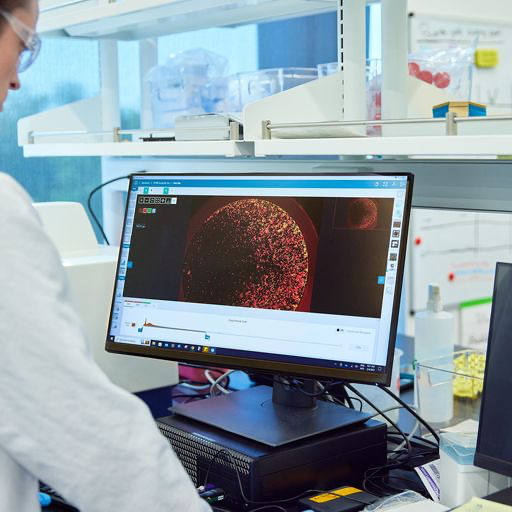These days, data is part of everyday life. Each movie you watch on a streaming service or product you buy online provides a data point for machine-learning models to predict your future viewing interests and buying habits. The more data collected, the better the suggestions become.
At St. Louis-based Benson Hill, this type of machine learning is being used to accelerate the development of crops by combining plant science, food science and data science. The goal is to create crop varieties with specific qualities, such as higher protein content in soybeans or improved flavor in yellow peas. The company calls its platform CropOS.
“We’re building machine-learning models that predict performance based on the data we’ve gathered,” says Dave Larson, senior data engineer. “We’re starting from years of field performance data, and we’re stacking on top that information about composition and food properties. We’re able to supercharge the plant-breeding process by building massive simulations to look at all the possible varieties.”
Through CropOS, Benson Hill can look at tens of thousands of genes and narrow the pool down to smaller and smaller subsets of genes with the best potential to impact desired plant qualities. Predictive breeding, powered by artificial intelligence, then models tens of millions of possible options.
“It’s like a GPS mapping out possible routes to our ultimate destination,” Larson says. “CropOS lets us predict which crosses are going to give us the best path forward.” READ MORE

